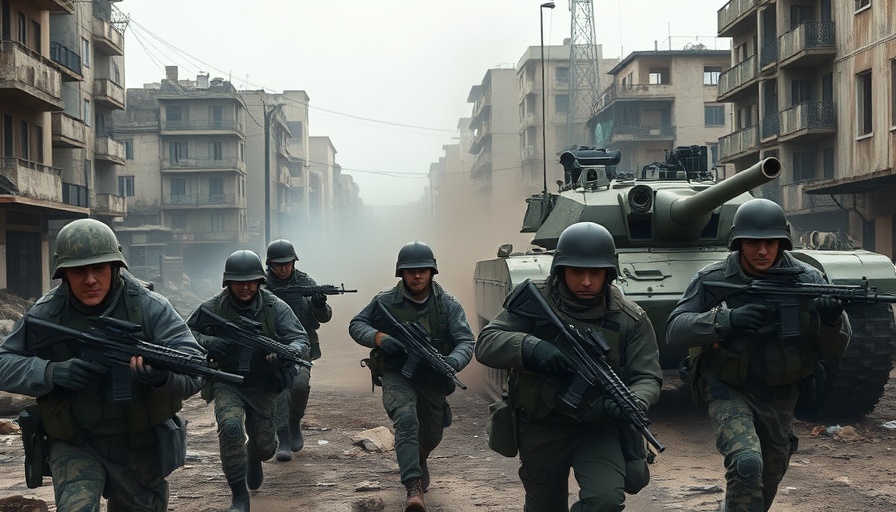
Rising Tensions in the Middle East: IDF's Call for Reservists
The Middle East has once again found itself at a crossroads, with the Israeli Defense Forces (IDF) preparing to mobilize tens of thousands of reservists. This decision comes amid growing concerns regarding the capabilities of Hamas, a prominent terrorist organization operating in Gaza. The IDF has reported that Hamas retains significant operational capacities, which is prompting a renewed military effort to counter this perceived threat.
The Objectives Behind the Mobilization
As tensions escalate, the IDF's primary objectives are clear: to apply increased military pressure on Hamas in an effort not only to rescue hostages but also to destabilize the group's power structure. Reports indicate that there are at least two brigades of Hamas that continue to function actively. Such insights raise urgent questions about the safety of both Israeli citizens and Palestinians caught in the conflict.
Contextualizing the Hostage Crisis
The hostage situation remains a significant factor in the current military strategies. There are ongoing fears that reliance on military intervention without sufficient diplomatic efforts may hinder potential pathways to peace. Advocates for humanitarian solutions argue that while military action is necessary, it must be coupled with dialogue initiatives to ensure the well-being of civilians on both sides.
Humanitarian Concerns: Civilians in the Crossfire
The escalation of military action invariably raises humanitarian concerns. As the IDF gears up for potential ground operations, it is crucial to consider the impact on non-combatants in Gaza. Organizations dedicated to humanitarian relief have voiced alarms regarding the possible hardships and casualties among civilian populations. It is vital for Christian humanitarian advocates and global citizens alike to remain informed about these complexities.
Echoes of Past Conflicts: A Historical Perspective
This mobilization echoes past military engagements that have shaped the contemporary Israeli-Palestinian conflict. The historical context of military mobilizations brings forth important reflections on how they have provided immediate security solutions but have often complicated longer-term peace prospects. Understanding this cyclical nature can inform the moral and ethical deliberations that Christian communities may encounter as these events unfold.
Potential Outcomes and Future Predictions
The potential outcomes of this military escalation could drastically affect the fabric of Middle Eastern politics. Observers of the region speculate on a range of scenarios—from a possible decrease in Hamas's operational strength to increased international intervention. Faith-based advocates might ponder how these developments might impact interfaith relations and efforts toward reconciliation.
Calling for Prayer and Action
In light of these developments, it is essential for communities to engage actively through prayer for those affected and to advocate for both peace strategies and humanitarian assistance. Christians are often called to respond with compassion, recognizing both the need for security and the enduring significance of human dignity in times of crisis.
Conclusion: Our Role in This Conflict
As the IDF prepares to mobilize its reservists amid a climate of uncertainty, thoughtful engagement is crucial. Faith communities, particularly those deeply invested in the region's wellbeing, should remain informed, pray for peace, and advocate for the vulnerable. It's a challenging time that calls for both resilience and hope.
 Add Row
Add Row  Add
Add 








 Add Row
Add Row  Add
Add 

Write A Comment